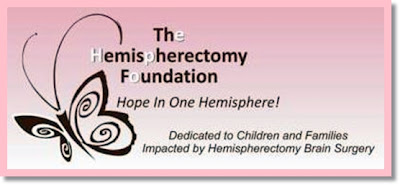"Ginger Taylor commented on the pressures on families with autism and on the greatest fear of many parents of autistic children: "That is the big question -- what happens to our child when we die. .... We understand their needs better than anyone else. It really breaks my heart hearing what happened to this family. It shouldn't be like that.""
The Portland Press Herald , April 28, 2010
The Portland Press Herald , April 28, 2010
The recent murder and attempted murder/suicide cases involving mothers and their children with severe autism disorders are not the first such tragedies to occur. Unfortunately the same patterns are unfolding ... the refusal to seriously address the need for decent, humane residential care and treatment facilities for adults with severe autism disorders continues, the attempts by the TPGA and other ND groups like the ASAN corporation to suppress any discussion of the harsh realities of severe autism disorders and the effects on those who suffer from them and their families are continuing. No one is speaking about what has to be done to help the severely autistic live a decent life for fear of being subjected to irrational accusations that to do so is akin to excusing or justifying the killings. David H. Gorski, TPGA ideologues Emily Willingham, Shannon des Roches Rosa, ASAN corporation's Ari Ne'eman and blogger Matt Carey have all been eager to attack Sharyl Atkisson and CBS for daring to portray some of the harsh realities that affected Alex Spourdalakis and his mother.
Dennis Hoey of The Portland Press Herald reports that a man in Gray, Maine shot and killed himself and his 22 year old autistic son yesterday:
"A father shot and killed his autistic son Tuesday at their home on Yarmouth Road before turning the rifle on himself, Maine State Police said. Cumberland County sheriff's deputies found the bodies of Daniel McLatchie, 44, and his son, Benjamin McLatchie, 22, in the family's driveway at 227 Yarmouth Road around 2:30 p.m. ... State police Sgt. Chris Harriman said ... it appeared that Daniel McLatchie was upset about what would happen to his autistic son after he and his wife died. He was a stay-at-home father, Harriman said. Daniel McLatchie's wife, Allison McLatchie, 45, was at work when the shootings happened."
Ginger Taylor the Maine author of the Adventures in Autism blog, and herself the mother of an autistic son, was interviewed and notes the lack of services including counseling services for families with autistic children. Ms Taylor commented on the pressures on families with autism and on the greatest fear of many parents of autistic children:
"That is the big question -- what happens to our child when we die. .... We understand their needs better than anyone else. It really breaks my heart hearing what happened to this family. It shouldn't be like that."
Many people will undoubtedly condemn Daniel McLatchie for taking his son's life. Some will call for more services. Few, if any, will take the real action necessary to ensure that people with autism disorders like Benjamin McLatchie have a decent place to live when their parents are dead.
Few, during Autism Awareness Month, and certainly not Hollywood or the main stream media giants, will look beyond the accomplishments of a few High Functioning media celebrity "autistics" to even acknowledge the existence of severely autistic persons living desperate lives in institutional facilities. Even fewer will acknowledge, without mocking or attacking them, the fears of parents obsessed with worry about what will happen to their children after they die.
In the end, whether it is at the hands of a distraught parent, or from life in prison like, psychiatric hospitals, it is the most vulnerable, the most severely affected by autism disorders who suffer from lack of reality based autism awareness and support services.
"That is the big question -- what happens to our child when we die. .... We understand their needs better than anyone else. It really breaks my heart hearing what happened to this family. It shouldn't be like that."
Many people will undoubtedly condemn Daniel McLatchie for taking his son's life. Some will call for more services. Few, if any, will take the real action necessary to ensure that people with autism disorders like Benjamin McLatchie have a decent place to live when their parents are dead.
Few, during Autism Awareness Month, and certainly not Hollywood or the main stream media giants, will look beyond the accomplishments of a few High Functioning media celebrity "autistics" to even acknowledge the existence of severely autistic persons living desperate lives in institutional facilities. Even fewer will acknowledge, without mocking or attacking them, the fears of parents obsessed with worry about what will happen to their children after they die.
In the end, whether it is at the hands of a distraught parent, or from life in prison like, psychiatric hospitals, it is the most vulnerable, the most severely affected by autism disorders who suffer from lack of reality based autism awareness and support services.















